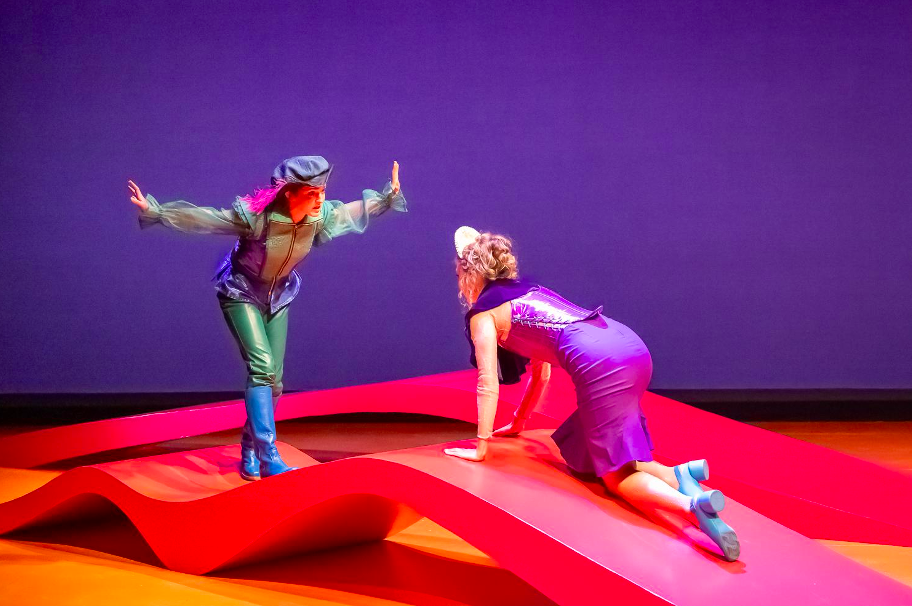
An elephant has the wisdom that comes with age, demands respect and is thick-skinned. The same can be said for Peggy Shaw, who brought her autobiographical collaboration with the Clod Ensemble, “MUST: The Inside Story,” to Bartlett Hall on April 5 and 6.
Shaw took her audience on a journey through 50 years of American medicine, sharing some of her most frightening experiences, and frequently compared herself to the Elephant Man.
She began by recounting her failed attempt to leave the hospital in New York City to make it to the Woodstock festival, which happened to be during the birth of her daughter. Then came her mother’s mental illness, and later its treatment with round after round of electroshock therapy. One of the hardest moments to watch was a song about Shaw’s sister, who died an early death.
The greatest talent Shaw possesses is her ability to draw the audience in with personality and jokes, and then, follow it quickly with disturbing and grotesque imagery, leaving the audience feeling raw and open to whatever will be thrown their way next. She began with jokes about life as a 66-year-old lesbian grandmother, quickly followed by hard-hitting poetry, often about death or sex – or both. What made it so disquieting was her use of “you” and “I,” which seemed to force the audience into a sense of intimacy.
However, it was hard to go without noticing the long pauses that were found throughout the one-hour performance. Numerous times, Shaw had to pause to remember a line or had to repeat herself.
It turned out that this was Shaw’s fifth performance after having a stroke only seven weeks ago.
“Tonight was the scariest show for me,” she admitted during a post-show discussion.
The fact that she is performing an hour-long show with relative ease is more than impressive, considering the conditions. What was also impressive was how receptive the audience was to the performance.
“Even though it’s about Peggy, it’s open enough that people can project their own experiences,” Suzy Wilson, the co-writer and director of the piece.
Shaw’s minor slip-ups were not nearly as serious a flaw as its music, which seemed straight out of a Bugs Bunny detective-themed cartoon. It was clichéd, and made parts of it feel like an amateur film noir piece.
The technology used in “MUST,” however, is brilliant. Projections of viruses, cells, and general landscapes of the human body punctuate Shaw’s words. One of the most moving sequences had no words at all. Shaw stripped the clothes off of the top half of her body and stood right against the projection screen with her back to the audience. Slide after slide reflected on to her arms, her back and her hair. She was the show, and the show was her.
It’s odd to hear slam poetry from a 66-year-old woman, but it accompanied the movement of the piece incredibly well. The poetic stanzas make more sense after learning that Wilson studied under the famous physical theater acting teacher, Jacques Lecoq.
“Lacoq believed that the human body is poetic beyond words,” Wilson said, describing Lecoq’s theories.
There is no better verbal accompaniment for such a theory than poetry, itself.
Shaw is a master of human emotion. She manipulates the audience until it is twisted around her finger and at her mercy. “MUST” offers her powerful words, and unites them with the work of some very talented artists.
Alissa Mesibov can be reached for comment at [email protected].






